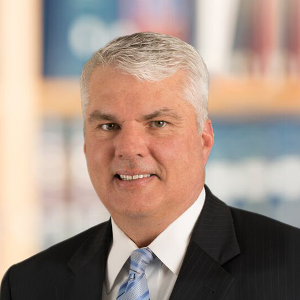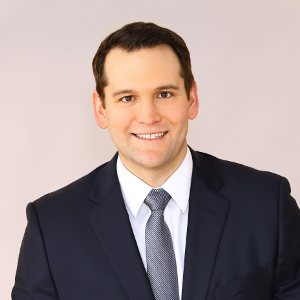Executive Summary: Rejecting a bright-line test, Pennsylvania’s Supreme Court ruled last week that a covenant not to compete executed by an employee after the first day of employment can be enforceable — even though no new consideration was given by the employer. In Rullex Co., LLC v. Tel-Stream, Inc., -- Pa. --, 2020 Pa. LEXIS 3294 (June 16, 2020), the Court overturned prior lower court rulings that held a non-compete signed after the first day of work must come with new consideration. This change removes a procedural hurdle for employers in Pennsylvania seeking to enforce restrictive covenants.
Background Facts
Rullex performs general contracting work on the repair and maintenance of cellular towers. Rullex hired defendant Karnei in February 2016 under a subcontractor agreement containing a two-year, 200-mile radius non-competition agreement (the “NCA”). Karnei, however, did not sign the NCA for several months after he began work for Rullex.
Through his work for Rullex, Karnei became acquainted with Invertice. Though Invertice and Rullex are direct competitors, Rullex also performed work for Invertice. After Karnei stopped working for Rullex, it was alleged that he used information about Invertice learned while working for Rullex, along with goodwill Rullex built up with Invertice, to secure subcontracting work from Invertice. Rullex cried foul, sued in 2018 and promptly sought preliminary injunctive relief.
In affirming the denial of Rullex’s injunction application, the appellate panel recognized that if a restrictive covenant is executed at the beginning of the employment relationship, the new job can constitute adequate consideration. On the other hand, any covenant executed after the first day of employment requires “fresh consideration” to be enforced. New consideration could include a promotion, a change from part-time to full-time status, or an increase in benefits. This bright-line rule, however, held that the “mere continuation of the employment relationship” begun before the restrictive covenant was signed is insufficient.
The Pennsylvania Supreme Court’s New Holding: Intent is Key
In rejecting this bright-line rule, the Supreme Court recognized that this approach “could subvert the expectations of parties” who expected the post-employment restriction to be part of the new employment but, for whatever reason, allowed an employee to wait to sign the covenant after his/her first day of work. Instead of focusing on whether the employee physically executed the document on the first day of employment, the new ruling centers on whether the parties intended to bind the employee to the document’s substantive terms as part of the employment relationship — even if the employee ultimately signed it shortly after the first day.
The Court distinguished that scenario from circumstances in which a non-compete agreement is imposed on an employee as an afterthought or “belated addition” to the employment relationship. Such a late restriction, unsupported by new consideration, remains unenforceable under Pennsylvania law. Instead, to enforce the restrictive covenant executed after the first day of employment absent new consideration, both parties must agree to its essential provisions at the outset of the employment relationship.
Applying this new standard to Rullex’s NCA, the Court found no proof of a meeting of the minds about the NCA at the start of Karnei’s employment relationship or that he otherwise manifested his agreement with the NCA or an intent to be bound by it from the outset. To the contrary, Karnei started work for Rullex at least two months before the NCA was executed. Based upon that fact, and the lack of the parties’ agreement to the NCA’s substantive terms when Karnei was hired, Rullex failed to meet its burden of proving a likelihood of success on the merits of its claim sufficient to warrant preliminary injunctive relief.
Employers’ Bottom Line
As a best practice, Pennsylvania employers using non-compete agreements should try to ensure that the documents are executed by new employees on or before the first day of employment. If that becomes impossible, it is imperative the employer communicate to each new employee that her/his new employment will be governed by post-employment restrictions and that s/he is expected to, and agrees to, execute a restrictive covenant at the inception of the employment relationship—even if the document has not yet been physically signed.
This ruling does not alter Pennsylvania’s general standard for enforceability of a restrictive covenant; namely, that it must be reasonably necessary to protect the employer’s legitimate interests and reasonably limited in duration and geographic scope. As before, the prospect of enforceability increases when the proposed limitations are narrow and specific rather than broad and vague.
Mark Saloman is Co-Chair of FordHarrison’s Non-Compete, Trade Secrets and Business Litigation practice group. If you have any questions regarding this decision, please feel free to contact Mark at msaloman@fordharrison.com, or the FordHarrison attorney with whom you usually work.
FordHarrison is closely monitoring COVID-19 developments including associated federal and state legislation and reopening guidance. The firm has implemented continuity plans to allow our lawyers and staff to work remotely in a technologically secure environment when necessary, ensuring continuity of our operations and uninterrupted service to our clients. We are following all CDC guidelines and state and local laws as applicable. We are committed to ensuring the health and welfare of our clients, employees, and communities while continuing to provide our clients with the highest quality service. Please see our dedicated Coronavirus Taskforce and Coronavirus – CARES Act pages for the latest FH Legal Alerts and webinars on COVID-19, the new American workplace, workplace-related provisions of the CARES Act, as well as links to governmental and industry-specific resources for employers to obtain additional information and guidance. For more information or to be connected with a Coronavirus Taskforce or CARES Act attorney, please contact clientservice@fordharrison.com.



























